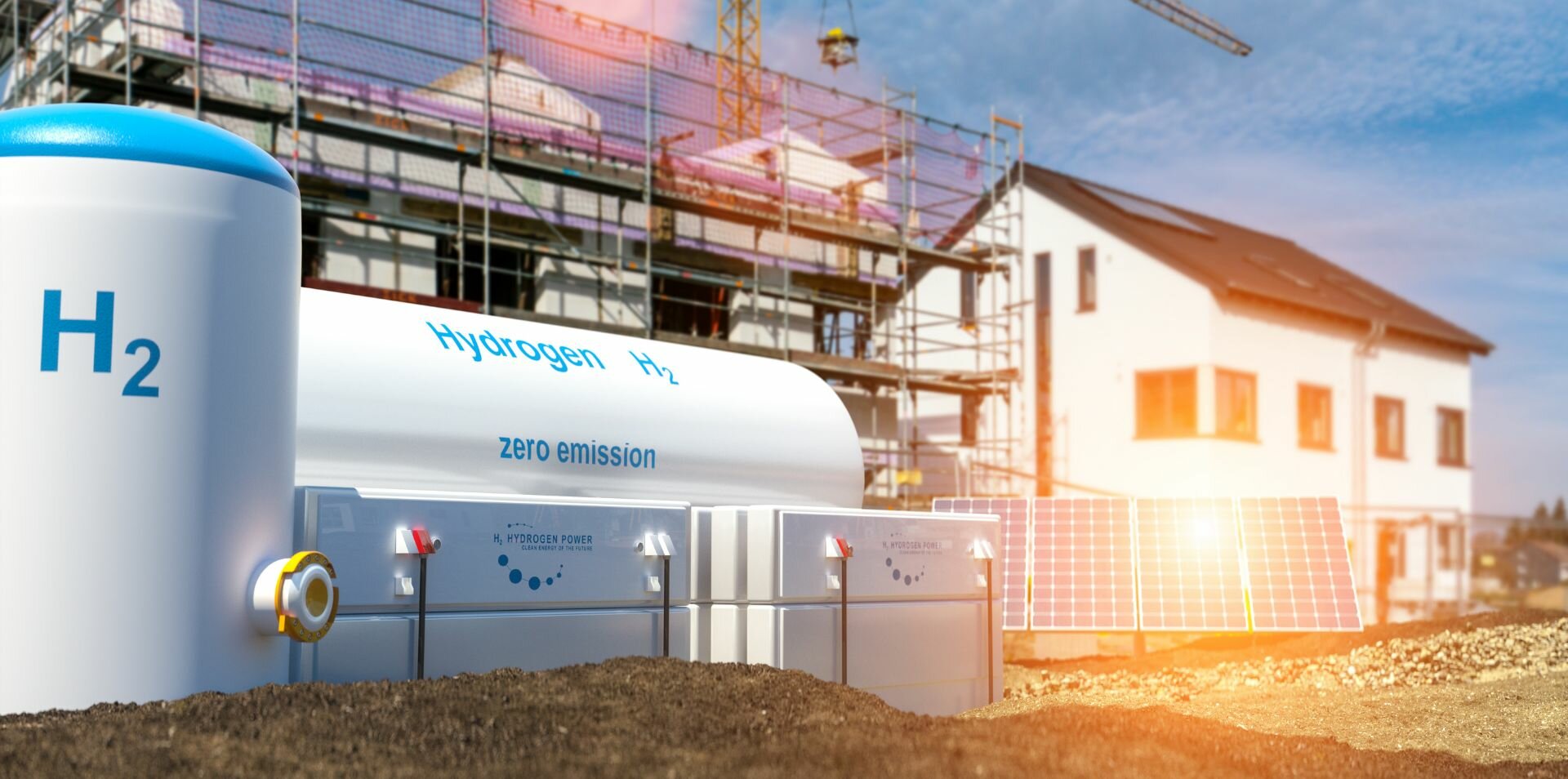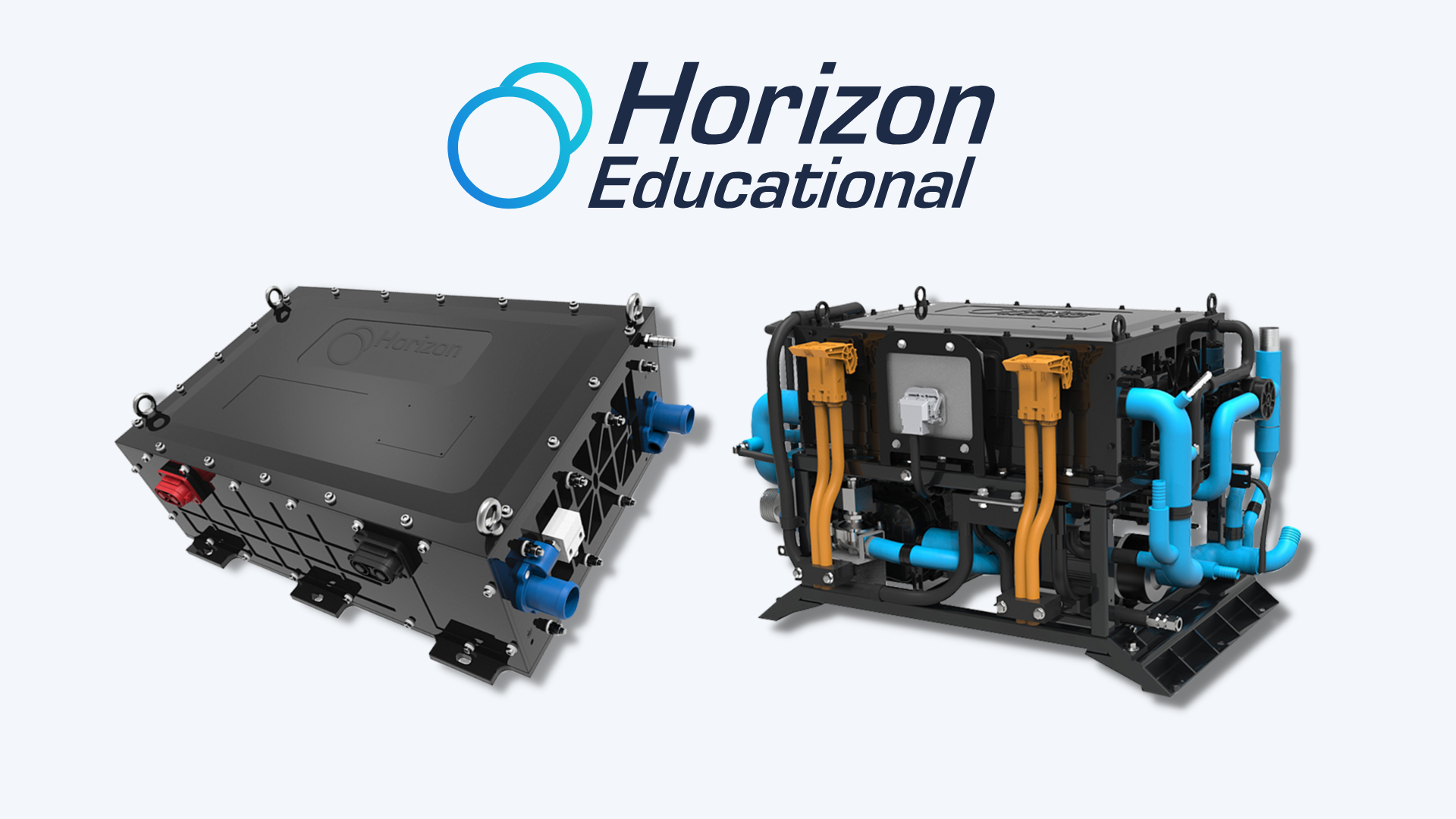Home Fuel Cells: What Are They?
We’ve all heard about people installing solar panels, heat pumps and thermal energy systems in their homes. Motivated by a desire to save the planet from catastrophe, families are transforming their homes to run on green energy. You might not know that fuel cells are beginning to be seen as a viable way to power and heat your house. Offering the ability to provide all the electricity and heat your home needs, these electrochemical cells produce can easily replace existing solar panels and oil and propane furnaces, converting your home to green power while being totally off-the-grid. The only inputs are hydrogen and oxygen, and the only waste product is pure water.
If you’re interested in learning more about home fuel cells, this article will be your complete guide. We’ll cover everything from costs and budgeting to hydrogen storage, to examples of hydrogen-powered homes. By the end, you’ll know everything you need to use a fuel cell to generate all the heat and electricity for your home.
What are Home Fuel Cells?
What’s a home fuel cell? The answer’s rather simple: a home fuel cell is similar to a larger industrial-scale fuel cell, but optimized for smaller-scale residential use. So you can replace your gas or oil central heating, propane tanks, and heat pumps with a clean energy system.
One of the advantages of doing this is integrating your home's heat and power systems. Say your home is hooked up to the electrical grid and you also use a gas furnace to keep your house warm. With a residential-sized fuel cell you can ‘hit two birds with one stone’ – powering your entire house while keeping it warm and toasty in the winter. All of this while being completely disconnected from the grid, meaning your isolated cottage or remote home can run entirely on green energy.

Homes Powered by Hydrogen: Who’s Making Them?
Multiple homeowners have claimed to own the world’s first ‘hydrogen-powered home’. In Pennington, New Jersey a local man built a 40 kW solar panel system accompanied by a hydrogen fuel cell along with an electrolyzer. Michael Strizki, the president of the Hydrogen House Project, spent over nine years in his workshop perfecting and fine-turning the technology for the solar/hydrogen-powered home.
Another example comes from Gothenburg, Sweden. Here Hans Olof Nilsson, a Swedish man in his 60s, built a house that is completely energy self-sufficient and powered entirely by the sun and hydrogen. When it’s a bright summer day Nilsson uses solar panels to power his home, but at night and in the winter hydrogen comes to the rescue – providing heat and power in the moments the sun stops shining.
Getting Your Hands on Hydrogen
Buying compressed hydrogen is much easier than people may realize. Depending on your region, a variety of companies offer direct delivery. In the US, for instance, companies such as WestAir, Linde and AirGas offer delivery of H2 to residential buildings as well as offices. In European countries, similar firms offer the ability to stock up on hydrogen gas yourself in order to power your own fuel cell-powered home.
Storing Hydrogen in Your House
After you figure out how to order hydrogen, you’re going to need a way to store it. This is usually done in high-pressure tanks (350–700 bar [5,000–10,000 psi] tank pressure) if you’re storing hydrogen gas. With liquid hydrogen, you’ll have to cool it to -253°C and store it in insulated tanks that maintain this low temperature. Needless to say, we recommend using pressurized hydrogen gas tanks if you’re storing hydrogen gas tanks in your house.
Another fascinating technology that’s used to store hydrogen gas is metal hydrides. These metal alloys (which are in the form of dust inside a storage container) perform an interesting task: absorbing hydrogen gas. It’s a complex combination of various metals – Zirconium, Titanium, Iron and Chromium among many others – and these metals are able to chemically bind with hydrogen gas when the gas is pumped in. It is this chemical reaction that allows large amounts of hydrogen gas to be stored in relatively small spaces, such as thumb-size hydrogen storage containers.
There are therefore several methods you can use to store hydrogen: as a high-pressure gas in a cylinder, as a liquid in a cryogenic container, or as a solid in a metal hydride. For your home fuel cell, we recommend compressed hydrogen gas. Storing hydrogen as compressed gas means you won't be wasting a lot of energy (keeping liquid hydrogen cool at -253°C requires advanced, energy-hungry cooling equipment) and is cheaper and lighter than metal hydrides (which can be expensive, heavy, and need to be replaced regularly).
Costs and Budgeting
After all this information, you might still be wondering: “How much will my home fuel cell cost me?” You'll need over $ 40,000, with prices ranging from around $ 38,000 to well over $ 100,000. The home fuel cell installed by Michael Strizki in Pennington, New Jersey, for instance, cost around $ 135,000.
Efficiency and Performance
Before you make the decision to take the plunge and get your very own home fuel cell, it’s important to look at the efficiency and performance of the system you’re interested in. Fuel cells in general have efficiencies far greater than fossil fuel-based engines, converting upwards of 60% of the energy stored in hydrogen to electricity. Make sure to check the efficiency of your own fuel cell, however, as some can have lower ratings of around 40%. Knowing the efficiency will allow you to determine how much hydrogen your fuel cell will use that what the overall costs will be.

Warranty and Support
Finally, always ensure your fuel cell has a complete warranty and first-class customer support. Horizon Educational fuel cell stacks come with a 1 or 2-year extended warranty, allowing for peace of mind for any potential scenario.
Who you decide as your home fuel cell manufacturer, make sure to research the warranty they provide and read up on their customer support. This way you’ll have confidence that your home fuel cell will last for years to come.
Conclusion
If you're interested in converting your home’s energy and heating to renewable energy, a home fuel cell can be an innovative solution worth considering. But before taking the plunge and buying a fuel cell to replace your fossil fuel-based system, you need to consider some things. Researching who’s installing residential fuel cells in your area is important, but it’s also vital to find a hydrogen supplier, store hydrogen effectively in your home, and research the efficiency of your fuel cell before buying one. Only after this can you calculate the costs involved and understand the true price of powering your home with a fuel cell.

